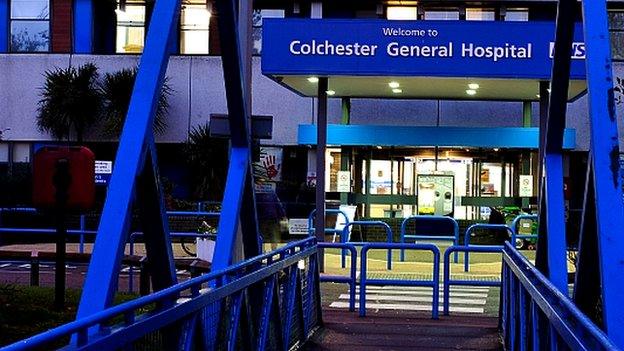Colchester General Hospital rated 'inadequate' over poor care
- Published
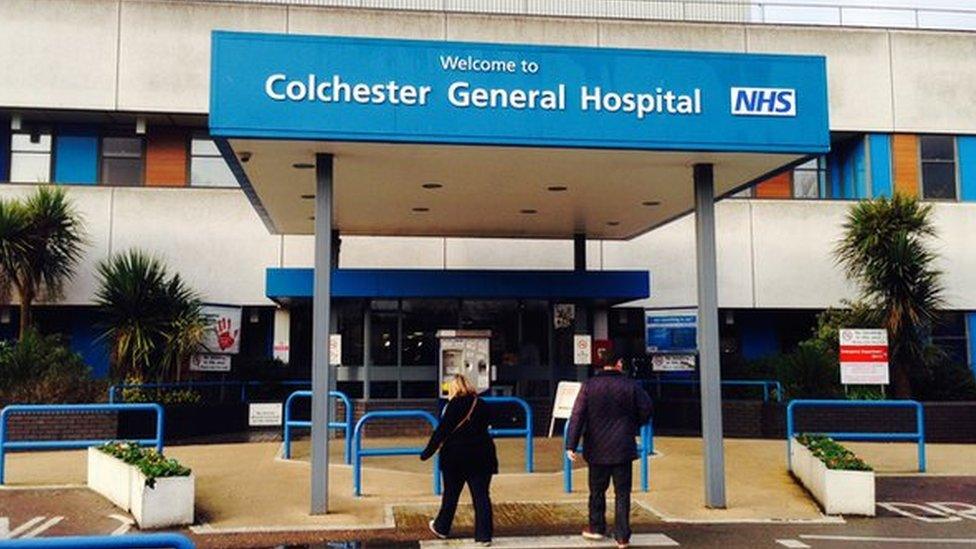
The trust's council of governors said the report "is likely to have a negative effect on the morale of our dedicated and loyal staff"
A hospital has been rated inadequate for a second year with some patients at "high risk" of harm and equipment often out of date, inspectors said.
Colchester Hospital's leadership was labelled "poor" by the Care Quality Commission (CQC), which put the hospital in special measures in 2013.
End-of-life patients did not always receive "safe or effective care", the watchdog also found.
The hospital said the report did not reflect the improvements it had made.
Operations were regularly cancelled and some cancer patients had to wait more than 100 days for treatment, the CQC found.
Staff 'let down'
Outpatients were often placed "at high risk of avoidable harm" because of a "real lack of understanding" of waiting lists, it said.
Many items of equipment had not been tested "for several years", despite this being raised as a concern at a previous inspection.

Timeline of events:
November 2013: Colchester Hospital University NHS Foundation Trust placed in special measures over cancer data inaccuracies
January 2015: Hospital rated "inadequate" by the CQC, leading it to take "urgent enforcement action"
July 2015: Checks by the CQC found continued problems with patient care
August 2015: The data inaccuracies were found to be due to "managerial incompetence" rather than any criminal offence
December 2015: Frank Sims starts as the chief executive

More on this story on BBC Local Live in Essex
Mothers were not always treated "with sufficient dignity and respect" on the postnatal ward, inspectors found.
Staff were praised for being "dedicated" but inspectors said they "felt let down" because many agency workers did not show the same level of commitment.
Prof Sir Mike Richards, the Chief Inspector of Hospitals, said the hospital has a "serious number of problems" and has shown "only limited capacity to improve".
'Blueprint for improvement'
"While the staff have been working hard through many issues to drive improvements locally, their efforts have been affected by poor leadership and a high use of agency staff, some of whom are unsuitable in terms of their skills and knowledge," he said.
He recommended the trust remains in special measures for the next three months, during which time it must submit a weekly improvement plan.
The trust's council of governors said the report might have an impact on recruitment and was "likely to have a negative effect on the morale of our dedicated and loyal staff".
All high-risk medical devices have been checked since the inspection, it added.
Chief executive Frank Sims said he was "disappointed" with the report but will use it as a "blueprint for improvement".
- Published3 September 2015
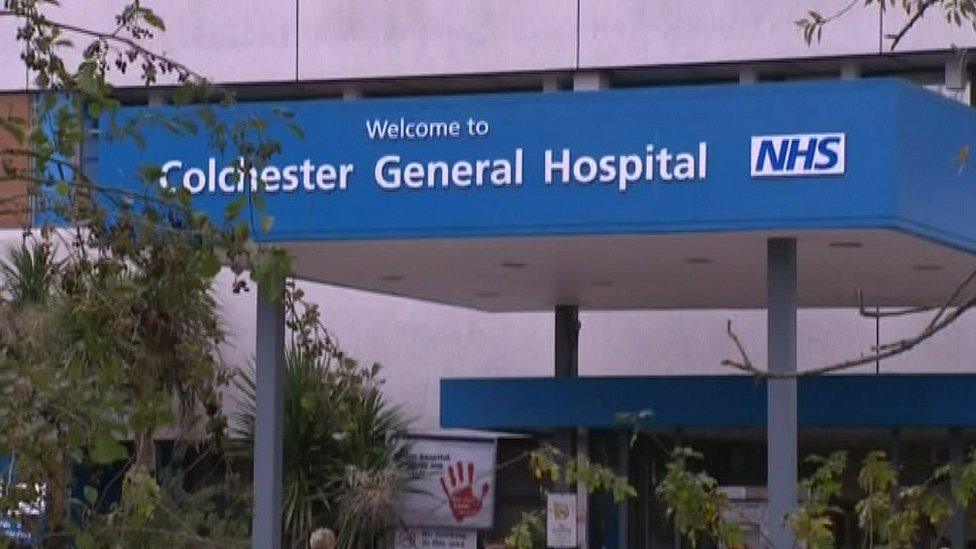
- Published28 August 2015

- Published13 August 2015
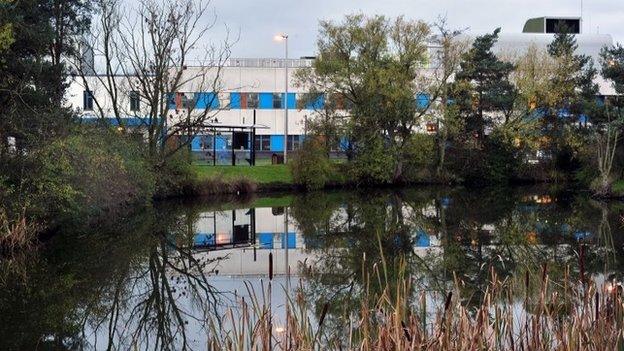
- Published6 May 2015
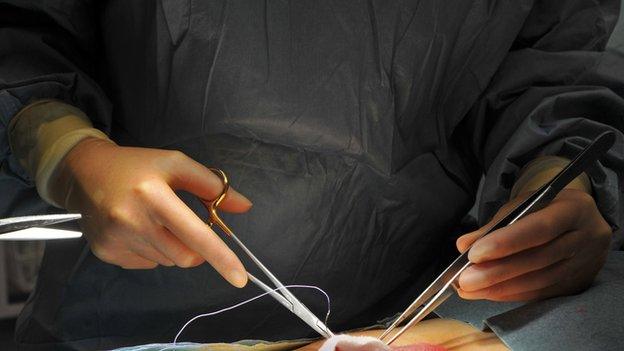
- Published23 March 2015
